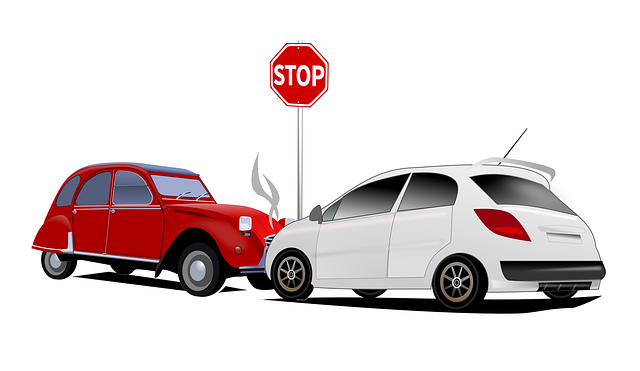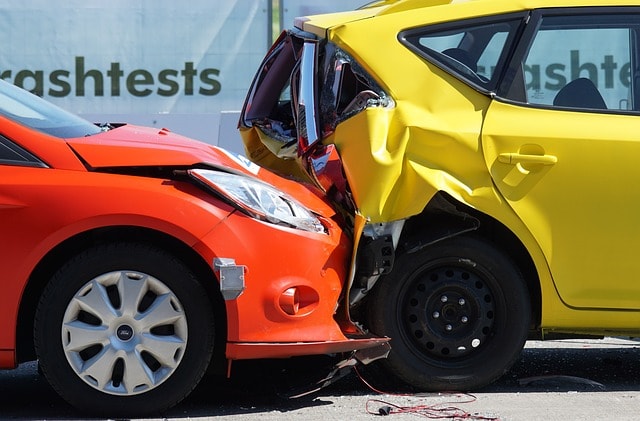
Getting into a car accident is never a pleasant experience, but the situation becomes even more complex when your car is declared a total loss but is still drivable. So, what happens when your car is totaled but still drivable? What if the insurance company declares the collision or comprehensive coverage invalid? Similarly, what if the insurance policy doesn’t cover the repair costs for some reason?
If you’re wondering about all of these questions, you’re not the only one. Car accident lawyers always deal with such scenarios and know how to handle them. However, educating yourself before reaching out to them is just as crucial,
Thus, this article will explore the ins and outs of such scenarios, providing you with the information you need to make informed decisions and understand your rights and options.
Defining Total Loss and Drivability
What is a Total Loss?
A car is considered a total loss, or “totaled,” when the cost to repair it exceeds a certain percentage of the car’s fair market value.
This percentage varies by state and insurance company, but it typically ranges from 60% to 80%. When a car is totaled, the insurance company determines that it is not economically feasible to repair it.
Drivability of a Totaled Car
In some cases, a totaled car might still be drivable. This means that while the vehicle has sustained significant damage, it is still operational and can be driven safely. However, just because a car is drivable does not mean it is safe or legal to drive in its current condition.
Considerations for Driving a Totaled Vehicle
Safety Concerns
The primary consideration is safety. Even if your car can be driven, it may have underlying issues that could make it dangerous. Structural damage, compromised airbags, or damaged crumple zones can pose serious risks.
Legal Implications
Driving a totaled vehicle may also have legal implications. In some states, a totaled car must be inspected and issued a salvage title before it can be legally driven again. This title indicates that the car has been significantly damaged and repaired.
What Happens When Your Car is Totaled but Still Drivable?
Insurance Company’s Role
When your car is declared a total loss, the insurance company will typically pay you the actual cash value (ACV) of the vehicle, minus any deductible. The ACV is the car’s fair market value before the accident.
Salvage Title and Rebuilt Title
If you choose to keep your totaled car, the insurance company will issue a salvage title. This title indicates that the vehicle has been severely damaged. If you repair the car and pass a state inspection, you can obtain a rebuilt title, allowing you to legally drive the vehicle again.
What Do I Need to Do When My Car is Totaled but Still Drivable?
Step-by-Step Guide
- Contact Your Insurance Company: Notify your insurer about the accident and follow their instructions for filing an insurance claim.
- Get an Appraisal: Have your car appraised to determine its actual cash value. The insurance company will likely send an adjuster to inspect the vehicle and assess the damage.
- Review the Settlement Offer: Once the insurance company determines your car is a total loss, they will make a settlement offer. This offer will be based on the car’s ACV.
- Decide Whether to Keep the Car: You can either accept the settlement and let the insurance company take the car, or you can keep the car and accept a lower payout (the ACV minus the salvage value).
- Repair the Car (if Keeping): If you choose to keep the car, you will need to repair it and pass a state inspection to obtain a rebuilt title.
- Address Legal and Safety Concerns: Ensure that the car is safe to drive and that you have the necessary legal documentation to drive it.
How to Recover Your Damages?
Insurance Claim Process
- File a Claim: Contact your insurance provider to file a car accident claim. Provide all necessary information about the accident and the damage to your vehicle.
- Claim Evaluation: The insurance company will evaluate the claim, inspect the vehicle, and determine whether it is a total loss.
- Settlement Offer: The insurer will make a settlement offer based on the car’s ACV. You can negotiate if you believe the offer is too low.
- Payment: Once you accept the offer, the insurance company will issue a payment. If you keep the car, the payment will be the ACV minus the salvage value.
Liability in Total Loss Cases
Determining Fault
In Nevada, the at-fault driver is responsible for the damages resulting from the accident. If the other driver is found to be at fault, their insurance company should cover your damages.
Comparative Negligence
Nevada follows a modified comparative negligence rule, meaning that if you are partially at fault, your compensation will be reduced by your percentage of fault. If you are more than 50% at fault, you may not be able to recover damages.
Bringing a Claim Against the Other Driver
If the other driver was at fault, you could file a claim with their insurance company. This process is similar to filing a claim with your own insurer, but you might need to provide additional evidence of the other driver’s liability.
Steps to Take
- Collect Evidence: Gather evidence of the other driver’s fault, such as police reports, witness statements, and photos of the accident scene.
- File a Claim: Contact the other driver’s insurance company to file a claim.
- Negotiate: Work with the insurance company to reach a fair settlement. Be prepared to provide evidence to support your claim.
- Consider Legal Action: If the other driver’s insurance company denies your claim or offers an inadequate settlement, you may need to file a lawsuit.
Determining Total Loss Value
Factors Considered
- Fair Market Value: The insurance company assesses the car’s fair market value, which is the amount a willing buyer would pay to a willing seller.
- Condition of the Car: The car’s pre-accident condition, mileage, and any previous damage are considered.
- Local Market Conditions: The value of similar cars in your area can influence the total loss valuation.
Disputing the Valuation
If you believe the insurance company’s offer is too low, you can dispute the valuation. Provide evidence such as recent sales of similar vehicles, repair estimates, and expert appraisals to support your case.
Will the Insurance Company Pay for My Totaled Car?
Coverage Types
- Collision Coverage: Pays for damage to your car resulting from a collision, regardless of who is at fault.
- Comprehensive Insurance Coverage: Covers damage to your car from non-collision events such as theft, vandalism, and natural disasters.
- Gap Insurance: If you owe more on your car loan than the car’s ACV, gap insurance covers the difference.
Insurance Company’s Payment
The insurance company’s payment will be based on the car’s ACV minus any deductible. If you keep the car, the payment will also be reduced by the salvage value.
Does the Insurance Company Replace My Car?
Replacement vs. Cash Payment
Most insurance policies do not include direct replacement of your car. Instead, the insurance company will pay the ACV, which you can use to purchase a new vehicle.
Rental Car Coverage
If you have rental car coverage, the insurance company will provide a rental car while your claim is being processed. This coverage usually lasts for a limited time.
How an Attorney Can Help You in This Case
Dealing with car accidents, especially when your car is totaled but still drivable, can be overwhelming. An experienced attorney can provide invaluable assistance in several key areas:
- Evaluating Your Case: An attorney assesses your accident’s specifics and damage to determine your claim’s value, providing a realistic estimate of potential compensation.
- Negotiating with Insurers: Attorneys handle communications and negotiations with insurance companies, ensuring you receive a fair settlement based on your vehicle’s actual cash value and other damages.
- Filing a Lawsuit: If the insurance company denies your claim or offers an inadequate settlement, an attorney can file a lawsuit and represent you in court to secure deserved compensation.
- Maximizing Compensation: An attorney includes all possible damages in your claim, such as medical expenses and lost wages, to maximize your potential compensation.
- Handling Legal and Administrative Tasks: Attorneys manage all legal and administrative tasks, allowing you to focus on recovery without the stress of legal complexities.
- Expertise in Comparative Negligence: Attorneys navigate the complexities of comparative negligence to minimize your fault percentage and maximize your compensation.
- Assisting with Uninsured/Underinsured Motorist Claims: An attorney helps file claims with your insurance for uninsured/underinsured motorist coverage, ensuring you receive the entitled benefits when the other driver lacks sufficient insurance.

Final Thoughts
Dealing with a totaled car that is still drivable can be a challenging and confusing experience. By understanding the process and your rights, you can make informed decisions and ensure that you receive fair compensation for your damages.
Take Control of Your Totaled Car Situation with BLG
Whether you’re dealing with your own insurance company or bringing a claim against another driver, having an experienced car accident lawyer can significantly ease the process and help you achieve the best possible outcome. If you find yourself in this situation, don’t hesitate to seek legal guidance to protect your rights and interests.
At BLG, we specialize in helping individuals like you secure the compensation and peace of mind you deserve. Our experienced car accident attorneys are ready to guide you through every step of the process, from negotiating with insurance companies to pursuing claims against at-fault drivers.
Contact us today for a free consultation.





